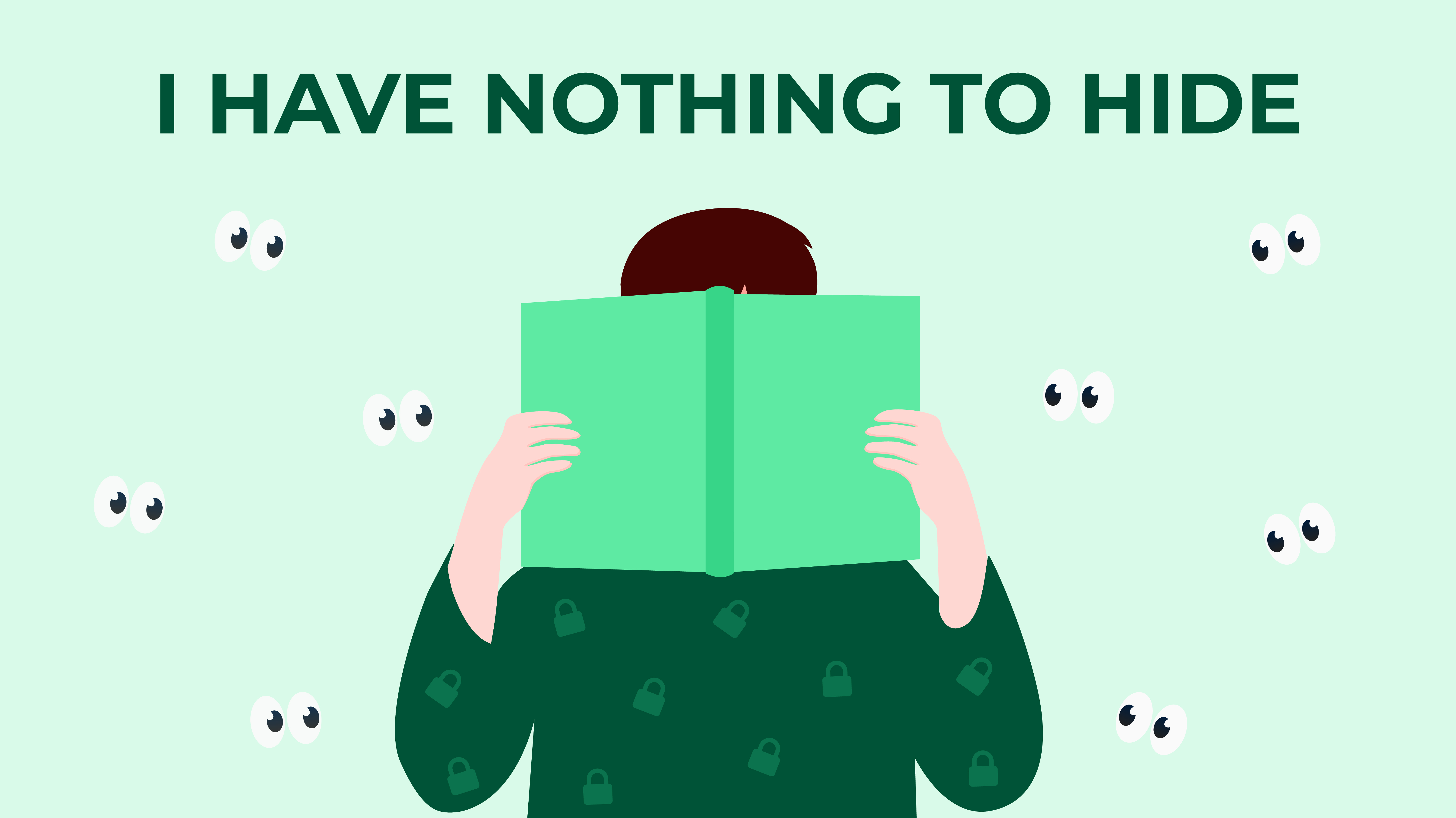“I have nothing to hide”: Why Privacy Matters

Does this statement make your hair stand on end? Unfortunately, the “nothing to hide” argument has persisted for far too long and often prevents any constructive discussion about privacy protection on the Internet. It’s high time to debunk it.
To anyone advocating for privacy protection online, this may sound familiar: arguments about why mass surveillance is not only ineffective but also extremely dangerous are often met with responses such as “Let them look at my chats, I have nothing to hide.” Although this line of thought is still widespread, it is flawed.
Would a camera in the bedroom be okay?
One of the reasons many people still react this way may be that online privacy is very abstract in nature. In the physical world, most people would probably take issue with the mail man opening and reading their letters, let alone with the government installing cameras in their bedrooms.
Even if we aren’t involved in illegal activities, there are places and situations that we don’t want others to see. It’s not because we have something to hide but because we simply prefer to keep certain parts of our lives private. That’s why we close the door when we go to the bathroom and don’t let anyone read our diary.
It’s all about protecting our freedom – the freedom to move and live without being monitored. However, many people take this freedom for granted and don’t see the need to protect it.
Where Data Is Collected, Data Can Be Misused
On the one hand, your data may not be of interest to your government at the moment because it is primarily looking for criminals. However, if the government’s position changes, your once harmless statements and data points may suddenly be viewed as critical. (The “nothing to hide” argument is therefore not only ignorant and short-sighted; it also assumes that the given social values and norms are fixed and will never change.)
On the other hand, someone who knows everything about you can easily manipulate or even blackmail you. Large corporations collect their users’ data online, evaluate it, and use it to construct highly accurate profiles that can be used to predict and influence user behavior with increasing precision.
Individual pieces of information such as date of birth or hobbies may seem harmless and not reveal much. However, when combined with thousands of other data points collected in the background and combined with data from other apps or websites, a fairly accurate picture of a person can emerge. Add to that the fact that AI can interpret these large collections of data points in a way no one was ever able before and potentially infer information nobody would ever want to share.
The potential for abuse is enormous: not only could large corporations and hackers exploit this data, but government actors who want to influence public opinion with targeted disinformation could too. Without confidential communication, it becomes impossible to form opinions freely, which would ultimately undermine democracy.
Privacy Protection Is Being Criminalized
Conversely, the “nothing to hide” argument implies that if you want to keep certain aspects of your life private (i.e., hidden), you must have done something wrong. However, this conclusion does not follow: just because criminal acts are usually carried out in secret, this does not mean that everything hidden is criminal.
Privacy protection is not about concealing misconduct or covering up illegal activities. Rather, it is about protecting your decisions, data, and freedom and limiting the power that others have over you. It is about retaining control over your own data, deciding for yourself how it is used, and reclaiming it if you wish. Because even if you have nothing to hide, you still have something to protect.

